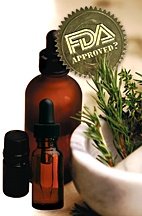In the July issue of Acupuncture Today, we reported that the Food and Drug Administration was close to issuing a final ruling on good manufacturing practices for dietary supplements.
According to the Final Rule, "We state in the 2003 CGMP Proposal (68 FR 12157 at 12175) that we declined to exempt herbalist practitioners from the proposed rule. We continue to believe that the risks of adulteration are not eliminated just because the practitioner is an herbalist, and therefore, such an exemption should not be included in this final rule. However, after further consideration, we have determined that it would be appropriate for us to consider the exercise of our enforcement discretion in deciding whether to apply the requirements of this final rule to certain health care practitioners, such as herbalists, acupuncturists, naturopaths and other related health care providers."
 The Final Rule includes requirements for establishing quality control procedures, designing and constructing manufacturing plants, and testing ingredients and the finished product. It also includes requirements for record keeping and handling consumer product complaints. The Final Rule goes into effect Aug. 24, 2007, and requires manufacturers to evaluate the identity, purity, strength and composition of its dietary supplements. According to the FDA, the purpose of the final rule is to prevent inclusion of the wrong ingredients, too much or too little of a dietary ingredient, contamination by substances such as natural toxins, bacteria, pesticides, glass, lead and other heavy metals, as well as improper packaging and labeling. The rule does include flexible requirements that can evolve with improvements in scientific methods used for verifying identity, purity, strength and composition of dietary supplements.
The Final Rule includes requirements for establishing quality control procedures, designing and constructing manufacturing plants, and testing ingredients and the finished product. It also includes requirements for record keeping and handling consumer product complaints. The Final Rule goes into effect Aug. 24, 2007, and requires manufacturers to evaluate the identity, purity, strength and composition of its dietary supplements. According to the FDA, the purpose of the final rule is to prevent inclusion of the wrong ingredients, too much or too little of a dietary ingredient, contamination by substances such as natural toxins, bacteria, pesticides, glass, lead and other heavy metals, as well as improper packaging and labeling. The rule does include flexible requirements that can evolve with improvements in scientific methods used for verifying identity, purity, strength and composition of dietary supplements.
In discussing its discretionary policy, the rule also states, "We believe that a one-on-one consultation by a practitioner who is adequately trained in their profession may not necessitate the same types of controls as we are establishing in this final rule for manufacturing activities that are on a larger scale. Such a practitioner may make some formulations in advance of the consultation and still make the formulations in very limited quantities for the individual client. We believe that it would be appropriate to consider the exercise of our enforcement discretion, on a case-by-case basis, to determine whether to apply the requirements of this final rule to such persons. We do not expect the number of those subject to the consideration of our enforcement discretion to be very large. Many products that are manufactured by practitioners would not necessarily be considered to be dietary supplements (e.g. certain products used by traditional Asian medicine practitioners)."
While it remains to be seen how evenly the discretionary practices of the FDA will be applied, some in the Oriental medicine community were concerned enough about how this rule would affect individual herbalist practitioners that the Council of Colleges of Acupuncture and Oriental Medicine correctly interpreted that this Final Rule would not exempt individual herbal practitioners or schools, and recently sent a letter expressing its concerns to the FDA. The AAAOM never understood the rule to include individual practitioners and stated in a position paper, "Only herb manufacturers and distributors have to comply with GMPs, not AOM practitioners or school pharmacies, who obtain herb supplies from them. Therefore, we believe the new GMPs can be reasonably and fairly applied."
The AAAOM provided Acupuncture Today with an initial statement regarding the FDA Final Rule: "The AAAOM Herbal Medicine Committee (HMC) recently met to discuss and analyze the 800-page final rule on cGMPs from the FDA. Our priority continues to be providing our membership with a clear and accurate assessment of the impact of the cGMPs on practitioners. To accomplish this, the AAAOM has enlisted legal counsel and other FDA experts. As soon as we have thoroughly reviewed and analyzed the rule, the AAAOM will provide a more comprehensive response through our web news services and media sources such as Acupuncture Today. We appreciate the complexity of this issue and the need for our members to be fully informed. Our intent is to analyze this systematically and thoroughly with the highest levels of expertise possible so that the community has information that it can rely upon."



